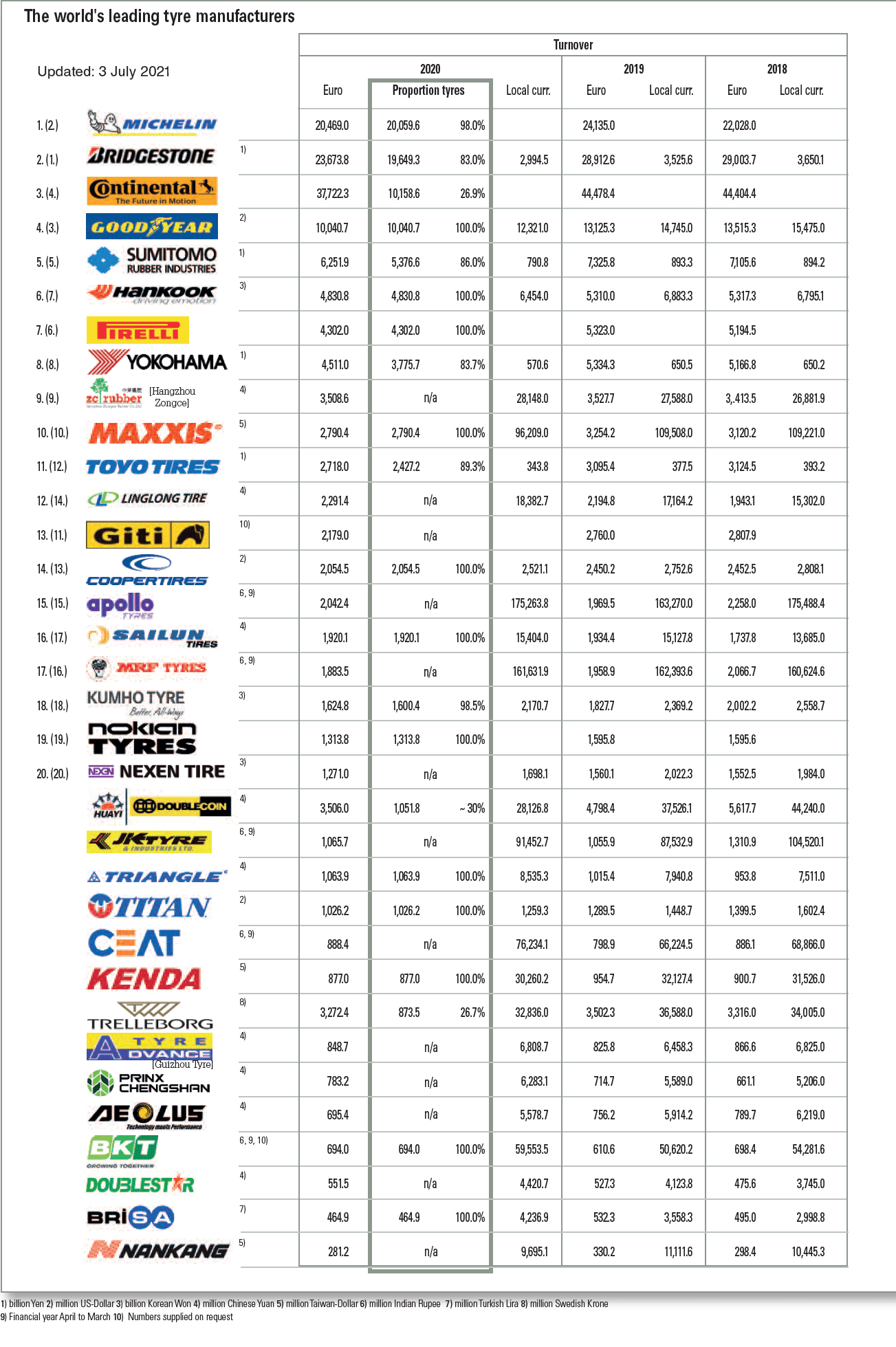The World’s Top Tire Manufacturers based on revenue from tires in 2020 are shown in the chart below. The world’s top tire maker is Michelin(MGDDY) of France followed by Bridgestone (BRDCY) of Japan, Germany’s Continental (CTTAY), US-based Goodyear(GT) and Sumitomo of Japan.
Here is an interesting fact: There used to be two tire makers in the US. But with the acquisition of Cooper Tire & Rubber Company by Goodyear earlier this year, currently there is only US tire company. All the other tires running on American roads are made by foreign manufacturers.
Click to enlarge
Source: Tyre Press
Disclosure: Long CTTAY

